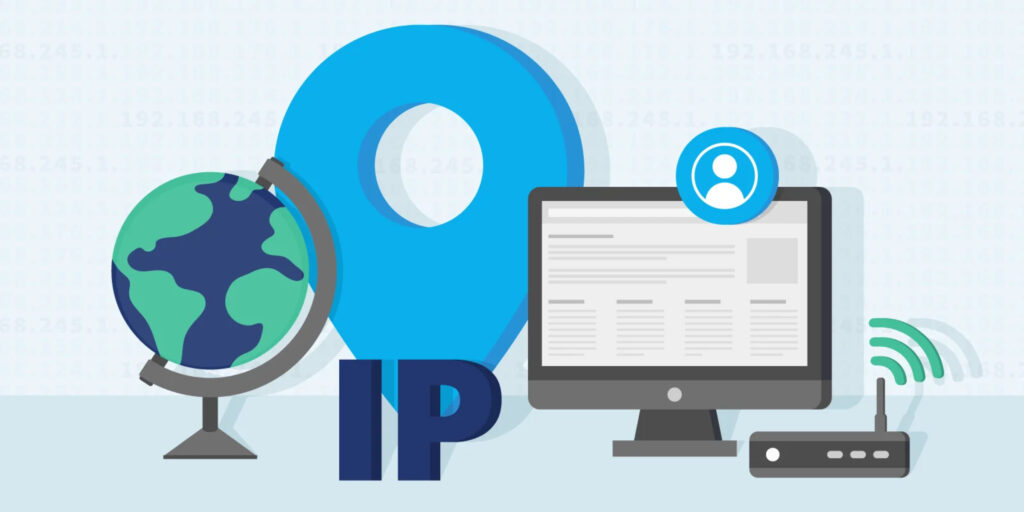Your IP address works a lot more dominantly than how your username and password define your digital identity. This complex number sequence acts as your digital identifier, which permits your access to services, websites, and even allows users to interact with you whenever you come online.
Therefore, having consistent IP addresses does far more than just serve technical purposes. It forms a layered trust foundation, ensuring easier access and guarding privacy in an environment that tracks digital footprints with every interaction. A stable IP ensures uninterrupted access during streaming, working remotely, or even casually browsing.
In this article, you will learn the methods of maintaining IP consistency, understanding how trust and secure access are fostered by it, and useful measures to take for a safer, seamless time spent online.

What IP Consistency Means for You?
Consider logging into your bank account from a new country each day — that would undoubtedly trigger some red flags. Consistency of IP refers to using the same address (or a small group) for all online activities. This form of stability makes account actions appear authentic, thus avoiding suspicion from websites and services.
When an IP gets consistent use, the user does not face security measures like account freezes or numerous verification procedures due to trust gaps. This characteristic enables users to access programs and services without interruptions or heavy reliance on cybersecurity frameworks with every server connection.
Why Websites Demand Trustworthy Signals?
Websites take security seriously so that both the user and the site itself remain safe. They assess your IP to authenticate your identity and determine where you are. If your IP jumps around a lot, like from New York to Singapore overnight, that is suspicious. Websites may deny you access, assuming you are a fraud or trying to hack them.
If you keep your IP the same for a certain period of time, you show that you are indeed a real user and not a malicious intruder or an automated system. Such credibility is important to access sensitive banking, e-commerce, or subscription services that have strict security measures.
Security Benefits of a Stable IP
Static IP allows precise control over system access because your address doesn’t change. Numerous services utilize IP whitelisting, which limits access to predefined IP addresses. With an immutable IP, only your device can access certain protected resources, which mitigates the risk of intrusion.
Constant whitelisted IPs facilitate easier monitoring and logging of network activity. Static IPs make unusual behavior more pronounced, such as unsolicited access and data movements, making these activities easy to identify and respond to swiftly.
Consistent IPs also improve the integration of sophisticated monitoring tools. Security measures like intrusion detection systems mandate a predetermined IP address to consistently scan for possible threats and apply security protocols. Constantly changing addresses gives those systems little to no respite, resulting in gaps open to exploitation.
How to Achieve IP Consistency?

Attaining IP consistency can be difficult, particularly when using public Wi-Fi or traveling often. This is where the best residential VPN shines. Unlike datacenter VPNs, residential VPNs give you an IP address linked to an actual home address, making your internet traffic seem real.
These IPs are more trusted by websites and less likely to cause blocking or CAPTCHA challenges. In addition, residential VPNs provide static or semi-static IPs, which helps maintain consistency across sessions. A trustworthy residential VPN allows you to take command over your digital identity seamlessly.
Avoiding Common Pitfalls Without IP Consistency
Non-consistent IPs can create significant problems on the internet. Therefore, understanding the risks associated with an IP address not being stable is extremely important.
- Account Suspensions: The system markings of suspicious activity associated with rapid IP changes can lead to account restrictions, either temporary or permanent. This renders essential services like banking and social media inaccessible, which may leave you suddenly locked out.
- Exclusion Blocks: Systems that spot inconsistent IPs tend to block users from accessing geo-restricted services. Outright denial on streaming websites or e-commerce platforms can lead to being blocked from accessing essential content or services that users rely on.
- Time-consuming Security Measures: Users can trigger extra security measures, for example, two-step authentications or email confirmations, due to odd IPs. These measures disrupt the smooth sailing access to an account and result in decreased productivity on the internet.
Practical Steps to Maintain IP Consistency
Interested in having a healthy and steady online presence? Follow these actionable tips to strengthen your online trust and access:
- Use a Residential VPN: Opt for a trusted provider offering static IPs for maximum consistency.
- Limit Network Switching: Avoid hopping between Wi-Fi networks, as each may assign a different IP.
- Monitor Your VPN Settings: Ensure your VPN reconnects to the same server location each time.
- Check for IP Leaks: Use online tools to confirm your VPN isn’t exposing your real IP.
Conclusion
Maintaining IP consistency is not only a technical requirement but rather a foundation for trust and access in online environments. Better control over your identity and convenience in your online world becomes possible with a consistent IP address, and such stability earns trust.
Whether you’re an individual concerned with privacy or a corporate entity protecting delicate information, a constant IP address is beneficial to have in the contemporary digital landscape.

